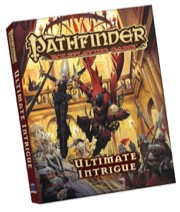 Marco Massoudi
Marco Massoudi
|
Pocket Editions still missing:
-Mythic Adventures
-Monster Codex
-Pathfinder Unchained
-Occult Adventures
-Horror Adventures
-Villain Codex
-Bestiary 6
-Adventurer's Guide
-Book of the Damned
-Ultimate Wilderness
-Planar Adventures
Also nice would be:
-Inner Sea Guide
-Inner Sea Races
-Inner Sea Gods
 Gorbacz
Gorbacz
|
Pocket Editions still missing:
-Mythic Adventures
-Monster Codex
-Pathfinder Unchained
-Occult Adventures
-Horror Adventures
-Villain Codex
-Bestiary 6
-Adventurer's Guide
-Book of the Damned
-Ultimate Wilderness
-Planar AdventuresAlso nice would be:
-Inner Sea Guide
-Inner Sea Races
-Inner Sea Gods
You forgot the Strategy Guide.
| Kodyax |
Definitely going to get this, I liked the hard cover. Sine I have it on some authority that the powers that be read this I wish to submit my sort of wish list of hard covers I hope and pray come out in soft cover like this sooner rather than later.
-Ultimate Wilderness
-Bestiary 6
-Occult Adventures
-Horror Adventures
-Pathfinder Unchained
-Mythic Adventures
-Monster Codex
-Villain Codex
Not necessarily in that order but these are the books that for me will be a must buy as soon as they drop.
 Marco Massoudi
Marco Massoudi
|
Definitely going to get this, I liked the hard cover. Sine I have it on some authority that the powers that be read this I wish to submit my sort of wish list of hard covers I hope and pray come out in soft cover like this sooner rather than later.
-Ultimate Wilderness - confirmed!
-Bestiary 6
-Occult Adventures - confirmed!
-Horror Adventures
-Pathfinder Unchained
-Mythic Adventures
-Monster Codex
-Villain CodexNot necessarily in that order but these are the books that for me will be a must buy as soon as they drop.
Occult Adventures & Ultimate Wilderness are in the next wave of the pocket editions. :-)
For me, that leaves Bestiary 6 & the Monster Codex as the most needed ones to carry around, but i would buy any of them! ;-)






